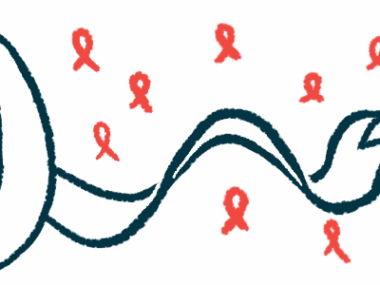My unexpected diagnosis with Gaucher disease type 1
In her debut, a columnist shares how she's found her strength
Written by |

When most people imagine being diagnosed with a disease, they picture a cold, sterile doctor’s office and a somber physician delivering bad news. But my story didn’t start like that.
I was a healthy kid with no red flags, no strange symptoms, and no reason to think I might have a genetic disease. My diagnosis with Gaucher disease in 2020 came completely out of the blue, triggered by my sister’s prenatal genetic testing. I found out by walking in on my parents talking to her on the phone. I had no idea that she had Gaucher, and even less reason to think I might, too.
I got tested and, to my shock, the results came back positive. I was diagnosed with Gaucher disease type 1.
Up until that point, I had been totally healthy; I was active, energetic, and had no signs of anything being wrong. Then suddenly, I was being poked, scanned, and tested to figure out the severity of my Gaucher symptoms. Most people have never heard of Gaucher disease. I hadn’t either, except for a family friend who has a severe case. But I didn’t feel like her. I felt fine.
Still, after the tests, I learned that I had low bone density and would need to start treatment. That’s when the fear really set in.
I was terrified of needles and blood draws — and enzyme replacement therapy for Gaucher is delivered through an IV. I went from being a completely healthy person to someone who needed regular MRIs, blood work every few weeks, and medication via IV every two weeks. It was overwhelming and scary.
It also changed how I saw myself.
I didn’t want to be seen as sick. But I also needed to explain to my friends and family what I was going through and why I needed to begin treatment. I worried about how people would react. Would they treat me differently? Would they see me as fragile? Amid college papers, hanging out with friends, and living a normal young adult life, now I also had to make time for infusions and checkups. I felt completely alone.
Learning to share my diagnosis
Eventually, through therapy and learning to open up, I found the courage to talk about it. Slowly, I began to share my diagnosis and what it meant for me. Still, to this day, not everyone in my life knows. It doesn’t exactly come up casually — like, “Hey, want to grab ice cream? Also, I have a genetic disease.”
Luckily, three years ago, I met my now-husband. From the very beginning, he was incredibly supportive. This year, we welcomed our beautiful son, and becoming a mom has pushed me to speak even more openly about living with Gaucher disease. I want my son to grow up knowing that his mom has nothing to hide, nothing to be ashamed of, and that she’s strong in who she is.
My journey didn’t end with the diagnosis. Over time, I’ve found ways to incorporate nutrition and integrative medicine into my health plan, which has helped me feel more empowered in managing my body. This process even inspired me to pursue a certification in integrative nutrition. My hope is to one day give back to the Gaucher community by supporting others on their journeys.
Through this column, I want to help others with Gaucher disease feel less alone. I want to share what life looks like as a mom living with this condition, and to give hope to anyone struggling. You can still live a full, healthy, and joyful life. While medication is a miracle for those of us with Gaucher disease, there are also holistic ways we can care for our bodies and feel our best.
If there’s one thing I want readers to take away from my story, it’s that a Gaucher diagnosis doesn’t define your life. Yes, it changes things. Yes, it can be hard. But it doesn’t take away your ability to dream big, to build a family, or to live fully. Whether you’re newly diagnosed or years into this journey, you’re not alone — and there is strength in sharing our stories.
Note: Gaucher Disease News is strictly a news and information website about the disease. It does not provide medical advice, diagnosis, or treatment. This content is not intended to be a substitute for professional medical advice, diagnosis, or treatment. Always seek the advice of your physician or other qualified health provider with any questions you may have regarding a medical condition. Never disregard professional medical advice or delay in seeking it because of something you have read on this website. The opinions expressed in this column are not those of Gaucher Disease News or its parent company, Bionews, and are intended to spark discussion about issues pertaining to Gaucher disease.




Leave a comment
Fill in the required fields to post. Your email address will not be published.